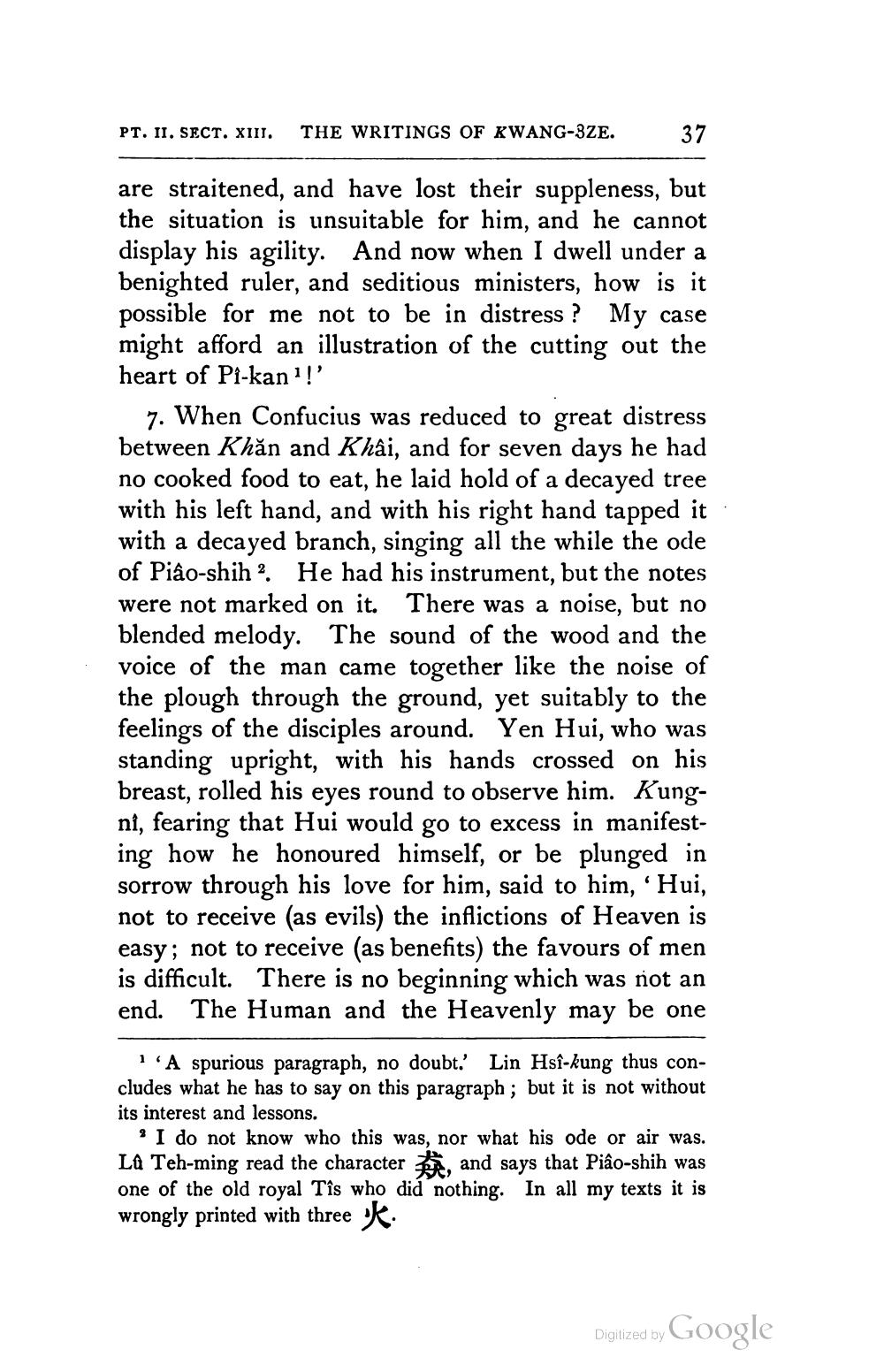________________
PT. II. SECT. XII.
THE WRITINGS OF KWANG-3ZE. - 37
are straitened, and have lost their suppleness, but the situation is unsuitable for him, and he cannot display his agility. And now when I dwell under a benighted ruler, and seditious ministers, how is it possible for me not to be in distress ? My case might afford an illustration of the cutting out the heart of Pi-kan!'
7. When Confucius was reduced to great distress between Khăn and Khâi, and for seven days he had no cooked food to eat, he laid hold of a decayed tree with his left hand, and with his right hand tapped it. with a decayed branch, singing all the while the ode of Piâo-shih 2. He had his instrument, but the notes were not marked on it. There was a noise, but no blended melody. The sound of the wood and the voice of the man came together like the noise of the plough through the ground, yet suitably to the feelings of the disciples around. Yen Hui, who was standing upright, with his hands crossed on his breast, rolled his eyes round to observe him. Kungni, fearing that Hui would go to excess in manifesting how he honoured himself, or be plunged in sorrow through his love for him, said to him, ‘Hui, not to receive (as evils) the inflictions of Heaven is easy; not to receive (as benefits) the favours of men is difficult. There is no beginning which was not an end. The Human and the Heavenly may be one
l'Aspurious paragraph, no doubt. Lin Hsî-kung thus concludes what he has to say on this paragraph ; but it is not without its interest and lessons.
'I do not know who this was, nor what his ode or air was. LQ Teh-ming read the character and says that Piâo-shih was one of the old royal Tîs who did nothing. In all my texts it is wrongly printed with three K.
Digitized by Google




